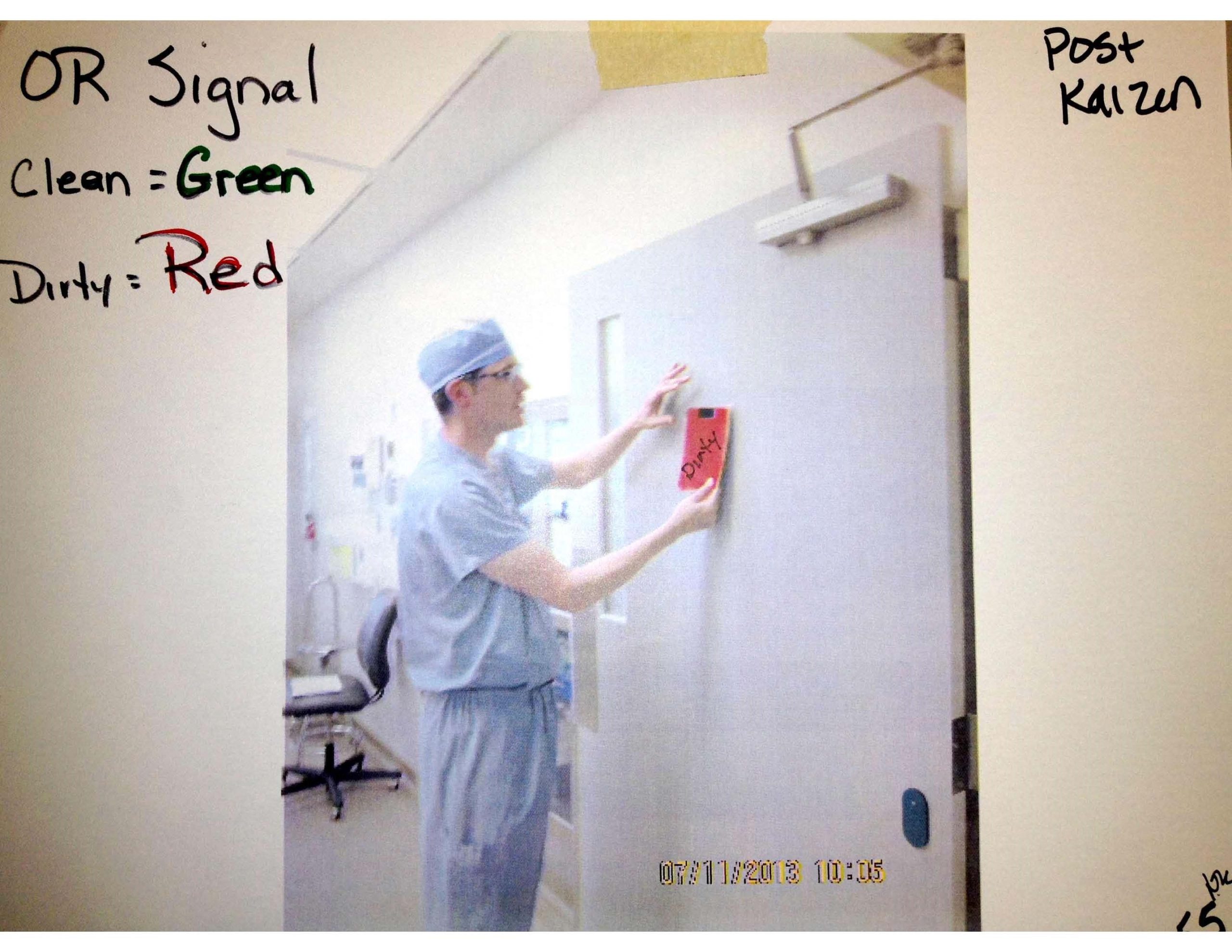When Ian Dunville heard a Rapid Process Improvement Workshop (RPIW) was coming to his work area, he wasted no time putting his name forward to be part of the team. “I was intrigued by the notion that I could help make changes in my workplace,” says the registered nurse, who’s worked in the operating room at Saskatoon City Hospital since 2010. For a young RN used to focusing on his own role, the RPIW – which looked at start times in the OR — helped Dunville start to see the bigger picture from both the patient perspective and the organization’s perspective. “There is a lot of work, and a lot of steps, involved before the patient meets me in the OR,” says Dunville. “By the time they meet me, the patient is already half-way through their journey.” He also gained an appreciation for how his work impacts others further along the patient journey, for example staff working in recovery.
Being part of the team that developed improvements for his own work area meant Dunville has had the opportunity to experience first-hand the direct, immediate impact of those changes. “On Monday, I’m back working where I did the RPIW.” For example, Ian will now pull his supplies for one surgery at a time rather than collect all of his supplies in the morning; this change will mean a more calm morning, and a decrease in re-work when changes are made to his cases later in the day.
Because this was his first RPIW, it took Dunville a couple of days to get his head around the approach and start to feel comfortable and confident contributing as part of the team. The experience also stretched him, because he needed to introduce change ideas to his colleagues in the OR. “People (regardless of where they work in health care) trust themselves and the processes they’ve used in the past,” says Dunville, so they can be skeptical of new approaches when they feel that they “know what works for them.” He enjoyed stepping outside his typical role and communicating with his peers in a different way: sharing new ideas with them, soliciting their ideas and input, and working with them to test and learn new ways of working.
However, Dunville says his peers were generally receptive to the changes he and the RPIW team were testing; he credits the solid working relationships he’s developed with colleagues in the OR, and his ability to clearly communicate to them the benefits of the proposed changes.
Dunville says he would, without reservation, encourage other front-line providers to participate in an RPIW. For him, It was an invaluable chance to step away from his day-to-day work, to see his work in a different light and enjoy “the freedom to try whatever we could think of” to make things better. He had a lot of fun and learned a lot. “This experience is going to enhance how I do my work and the satisfaction I get from my work,” says Dunville. “I would definitely do it again!”
July 23, 2013
Profile of an improvement champion: Ian Dunville



